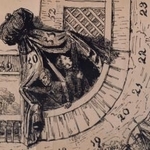Het gezag van 'mijnheer de voorzitter' in de parlementaire cultuur van de negentiende eeuw
DOI:
https://doi.org/10.18352/bmgn-lchr.6254Keywords:
ParliamentsAbstract
The authority of ‘Mr. Speaker’ in nineteenth-century Dutch parliamentary culture
The contemporary authority of the Speaker of the Second Chamber is obvious. His presence, for example, is repeatedly evoked with the enchanting mantra ‘Mister Speaker’ [‘Mijnheer de voorzitter’], even though the Speaker hardly ever has anything to say concerning content. In the nineteenth century — the so-called ‘age of parliamentarianism’ — presidential authority was not a matter of course and was an important subject of political debate that lasted for decades. This article investigates the struggle for authority through the words and deeds of representatives, Speakers and political commentators. This quest for exemplary chairmanship resulted in a number of parliamentary rules, rituals and (invented) traditions. These will prove that, far from being a matter of course, the authority of ‘Mr. Speaker’ was in fact a wily construction.
Downloads

Downloads
Published
Issue
Section
License
Authors who publish with this journal agree to the following terms:
a) Authors retain copyright and grant the journal right of first publication with the work simultaneously licensed under a Creative Commons Attribution 4.0 International (CC BY 4.0) that allows others to share the work with an acknowledgement of the work's authorship and initial publication in this journal.
b) Authors are able to enter into separate, additional contractual arrangements for the non-exclusive distribution of the journal's published version of the work (e.g., post it to an institutional repository or publish it in a book), with an acknowledgement of its initial publication in this journal.
c) Authors are permitted to post their work online (e.g., in institutional repositories or on their website) prior to and during the submission process.
Authors are explicitly encouraged to deposit their published article in their institutional repository.











